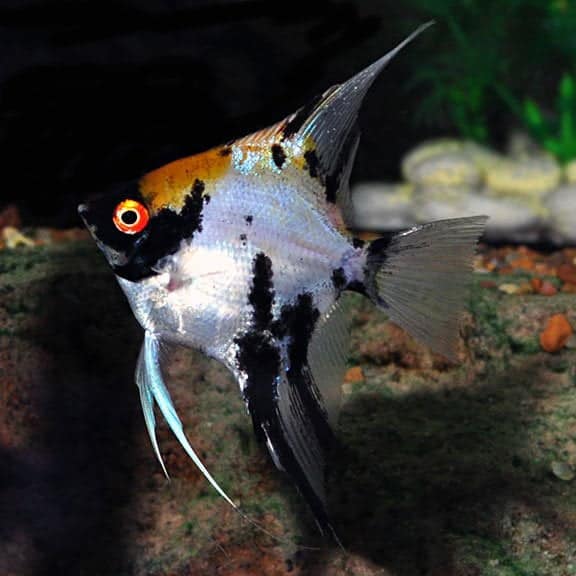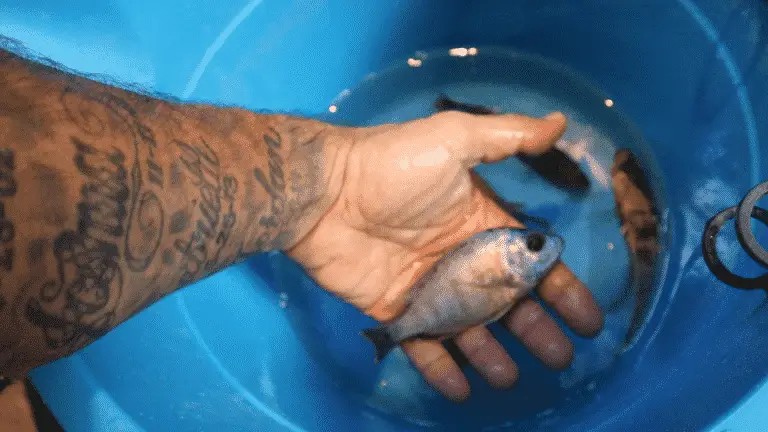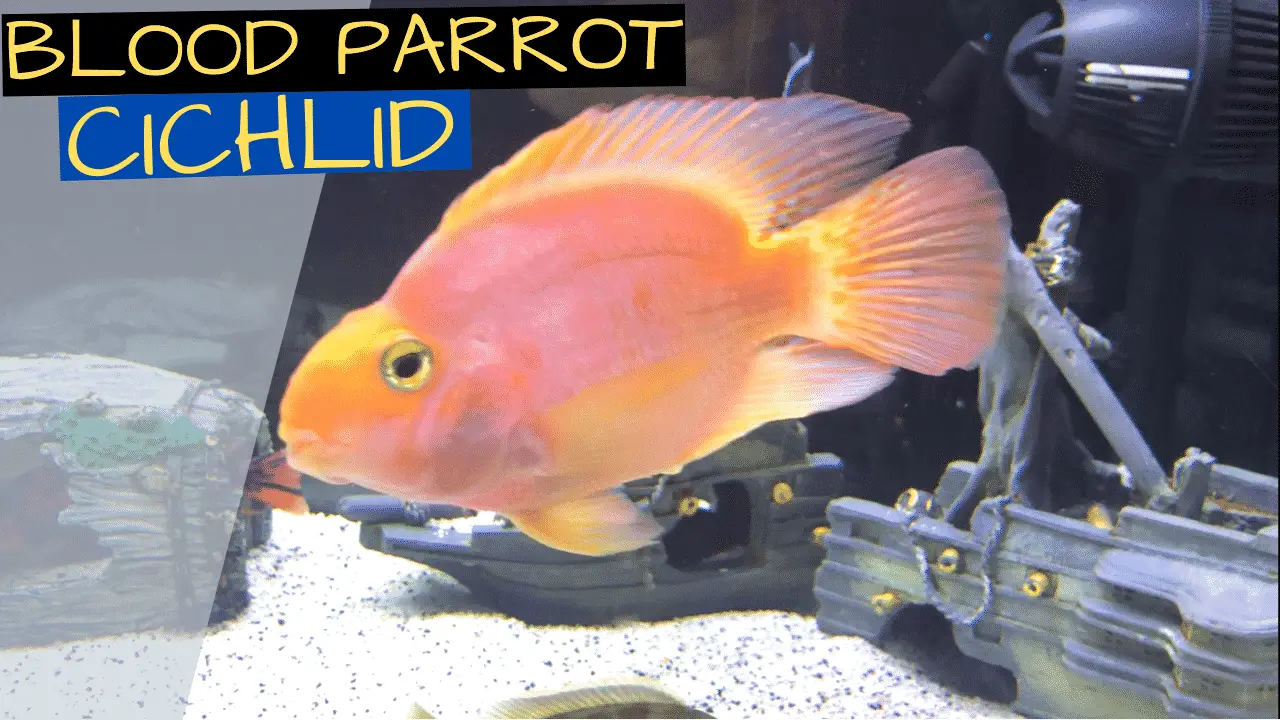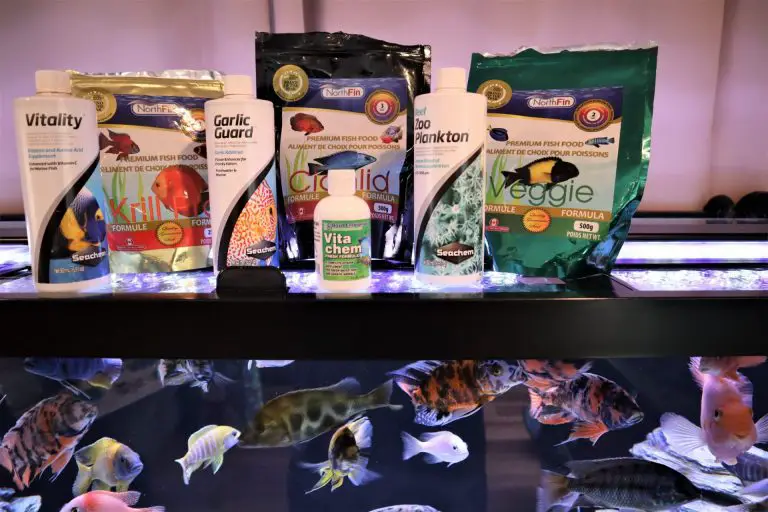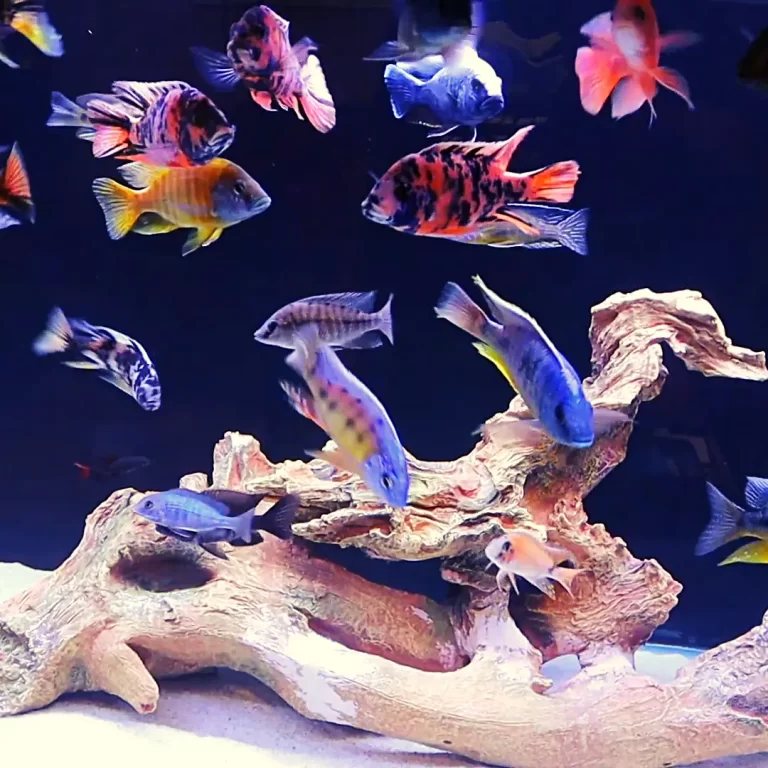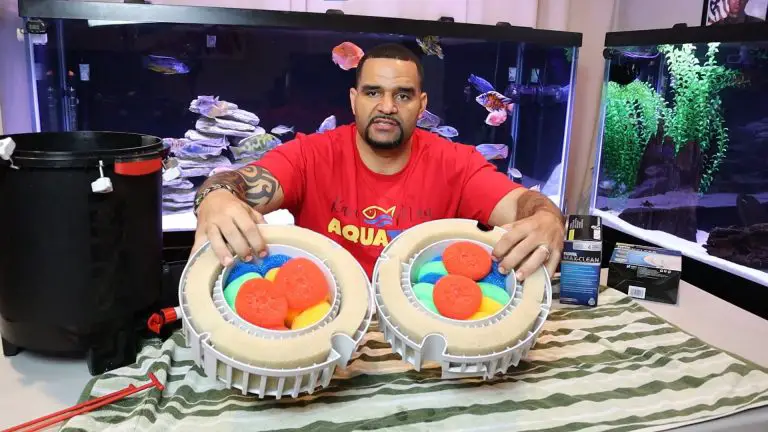Can African Cichlids live with Angelfish?
Can African Cichlids live with Angelfish, generally not a good idea. There are a few factors that lead us to this assessment, but a huge role is the aggressiveness of African Cichlids.
Can African Cichlids live with Angelfish?
Angel Fish are Cichlids too, however, they are a great example of a much more docile cichlid species. They are certainly capable of being aggressive towards other fish, but they are nowhere near as swift or vicious when compared to African Cichlids.
If there is one outstanding feature of an Angel Fish, it would be its “wings” or long flowing fins. These fins are sensitive and likely to be nipped at or completely torn or bitten off by more aggressive fish sharing a tank space.
This is an issue even with fish much smaller than African Cichlids. You are cautioned against keeping Angel Fish with Siamese Fighting Fish, barbs and even much larger Angel Fish.
This is certainly a frustrating aspect of the aquarium hobby. We see all of these beautiful fish and want to keep them together so that we can enjoy them at any time.
We are going to take a look at some of the best tankmates for both African Cichlids and Angelfish in this article, as well as learn a little more about why some fish are so aggressive.
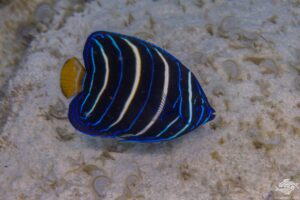
Fish Temperament
The temperament, or behavior, of a fish, has a great deal to do with its compatibility in a community aquarium environment. More aggressive species like most African Cichlids and other predatory fish do not mix well with docile species that tend to explore multiple water columns in a tank setting. These would be fish such as Live-bearers, Tetras, and Danios.
Most fish can be categorized into a few different types of aggression. They are territorial aggression, genetic aggression, and sex-specific aggression.
Territorial aggression is one of the most common types of aggression in aquarium fish. This refers to fish that become territorial around breeding times to ensure the safety of their partner and fry, fish that are territorial simply because their genetics tell them to reserve a space in their environment solely for themselves to inhabit, and other more niche territorial reasons.
We also observe sex-specific aggression commonly in Cichlids of all types. This is what drives the famous Cichlid “pecking order,” and what develops the alpha male domination in a community of cichlids.
We see the most dominant male in a community of cichlids become brightly colored both to attract females for breeding and as a means to warn other males to stay back and leave the females in the community alone.
Subordinate males in the same ecosystem will become flush of color, remaining rather drab looking until a time arrives in which they could become the “pack leader.” I wrote an article related to this titled – “Why do African Cichlids change colors?”

The final aggression type we see in fish is genetic aggression. These are fish that are hard-wired to be predators and are carnivorous. These include fish such as Cod, Sharks, Tuna, and Swordfish.
Some of these may surprise you, but these fish are vicious predators in the wild and very much capable of killing and eating fish both larger and smaller than themselves.
It is important to remember that sometimes a fish will need to get away from the rest of the community and have a place to lay low. This comes in the form of living and fake aquarium plants, stones, and rock caves as well as factory-made castles and ships specifically made to be placed into a home aquarium. Adding a variety of decorations to a tank not only allows beneficial bacteria yet another place to cling to, it helps keep the peace between fish in your tank.
However, with this being said, you may notice one or more of your fish defending a specific hiding spot or rock. This is to be expected, especially with semi-aggressive fish. The easiest way to deal with this issue is to rearrange the decorations occasionally during a water change.
Be mindful of any eggs or fry that may be present, and then simply move the decorations a few inches in any direction or completely rearrange them to your liking! Simple, right? Watch this video if you’d like more information on how to do a water change.
Suitable Tank Mates For African Cichlids

We have covered this topic in a previous article, “Can African Cichlids Live With Oscars?,” so this will be a brief recap of our listing there.
Most large Catfish make great tankmates for African Cichlids. They tend to keep towards the bottom of the tank and thus limit exposure to the more aggressive fish swimming above. This means that even if one of your African Cichlids is having a bad day and looking to pick a fight, they will likely not even notice the Catfish below.
Clown Loaches are a wonderful companion fish for you African Cichlids too. They also wander around the tank, bumping into other fish and generally being a blast to watch. They also get quite large so ensure that they are homed in a large enough tank to allow their growth.
Rainbow fish can also make welcome tank mates for African Cichlids, provided they are large enough when introduced to the Cichlids. Let them grow out a bit in a different tank or wait on bringing them home from the fish store.
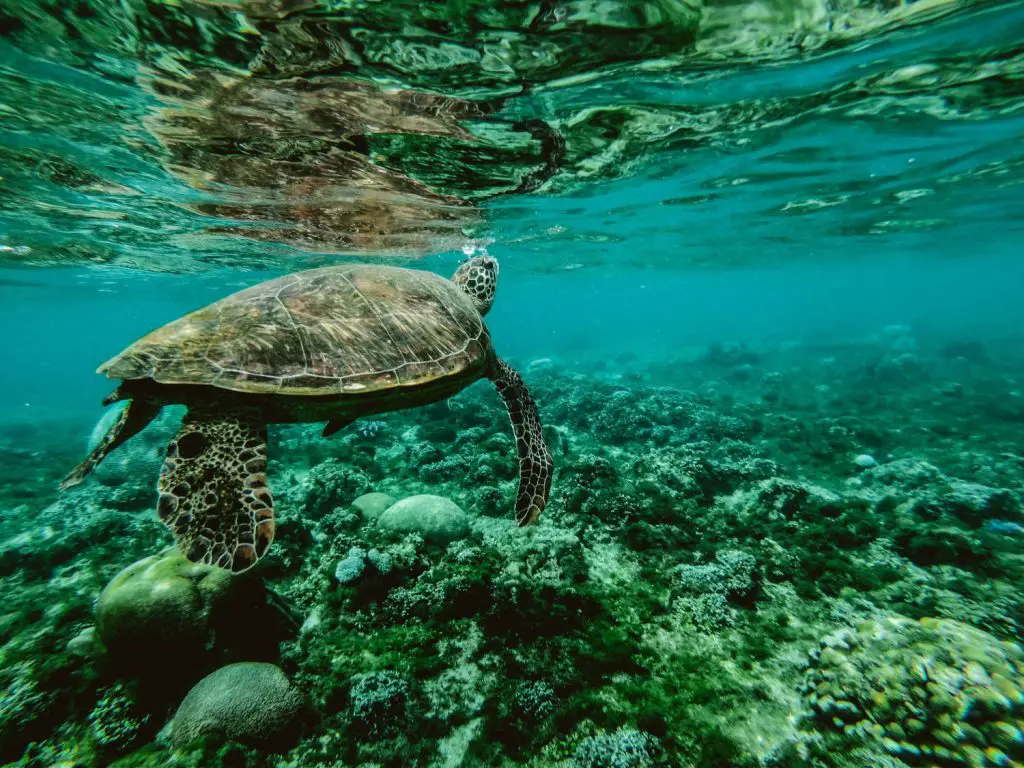
Siamese Algae Eaters are much like catfish, hanging out near the bottom of the tank and picking at bits of leftover food and algae. They are also semi-aggressive and will stand up to Cichlids who may decide to pick on them.
Most species of small sharks, such as Red Tails, are okay to keep with African Cichlids. They are semi-aggressive and will fight back if a cichlid decides to bully it.
Leopard Bushfish share the same level of aggressiveness as most African Cichlids and are a great match for their ecosystems. They tend to stay a bit smaller than most cichlids but have enough aggression to stand their ground if attacked.
Suitable Tank Mates For Angel Fish

Mollies, Platys, Guppies, and Endlers: These small and very docile fish make perfect tank mates for Angel Fish. They will leave the larger Angel Fish alone and generally mind their own business. These are quite curious fish though, and are a lot of fun to keep on their own accord.
Kuhli Loaches: These snake-like fish are awesome to watch move around. They wobble around and flip themselves from end to end to circle food and items of interest. These fish generally stay at the bottom of the tank and are very docile.
Tetras of almost every type: These fish almost always explore the open sections of the tanks in a school. It is recommended to keep at least half a dozen tetras of one type in a school, otherwise, they may become overly stressed and begin to nip at one another.
Cardinal, Rummy-nose, and Rainbow Tetras are commonly available at fish stores and make a great addition to your Angle Fish tank.
Ram Cichlids: While we know that most Cichlids don’t quite get along with Angel Fish, these are a notable exception. These beautiful fish will generally explore open water in a tank, yet will retreat when faced with a larger fish to avoid conflict.
Rasboras: Specifically Harlequin Rasboras look great with Angels. Their red color contrasts the black, white, and yellows of an Angel Fish quite well. These are small fish that generally keep to themselves.
Other Angel Fish: To a point, at least. Angels can become territorial, especially when it comes to protecting their fry. You need to have a sizable tank to house more than a handful of Angels so that expectant mothers have a little section of the tank to call home.
Rainbow Fish: Much like with the African Cichlids, the Rainbow Fish makes a good addition to a tank with Angels as well. These fish tend to explore the tank, yet actively avoid conflict with other fish.
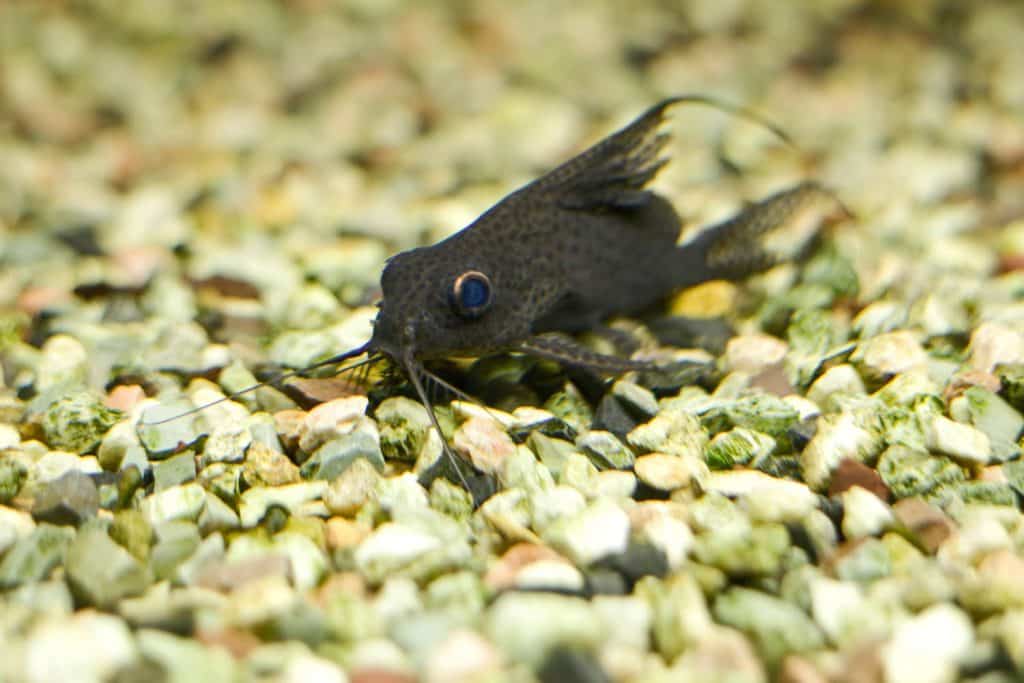
Corydoras Catfish: Cory Cats are awesome. They school together well and are generally considered one of the most hardy and docile fish to include in a home aquarium.
They graze near the bottom of the tank, surfacing occasionally to refill their labyrinth organ with fresh air. Ensure that you keep a small school of 6+ Cory Catfish to ensure that they feel safe in the tank. These fish have also been known to allow other small catfish into their schooling behavior.
Dwarf Gouramies: Males can become territorial against other males, so only keep one male in a tank. Multiple females are no problem, however, and make a beautiful arrangement alongside your Angel Fish.
Kribensis: These are a dwarf cichlid and another great example of a more docile cichlid species. Much like the Ram Cichlids listed above, these fish stay to themselves and are generally only aggressive while breeding.
Bushynose/Bristlenose Plecostomus: A Bristlenose Pleco can be a wonderful addition to almost any freshwater fish tank. They are a blast to watch and often attach themselves to driftwood or rocks upside down. They also clean algae from glass and are very interesting to observe doing so, almost like they are vacuuming the sides of your tank!

